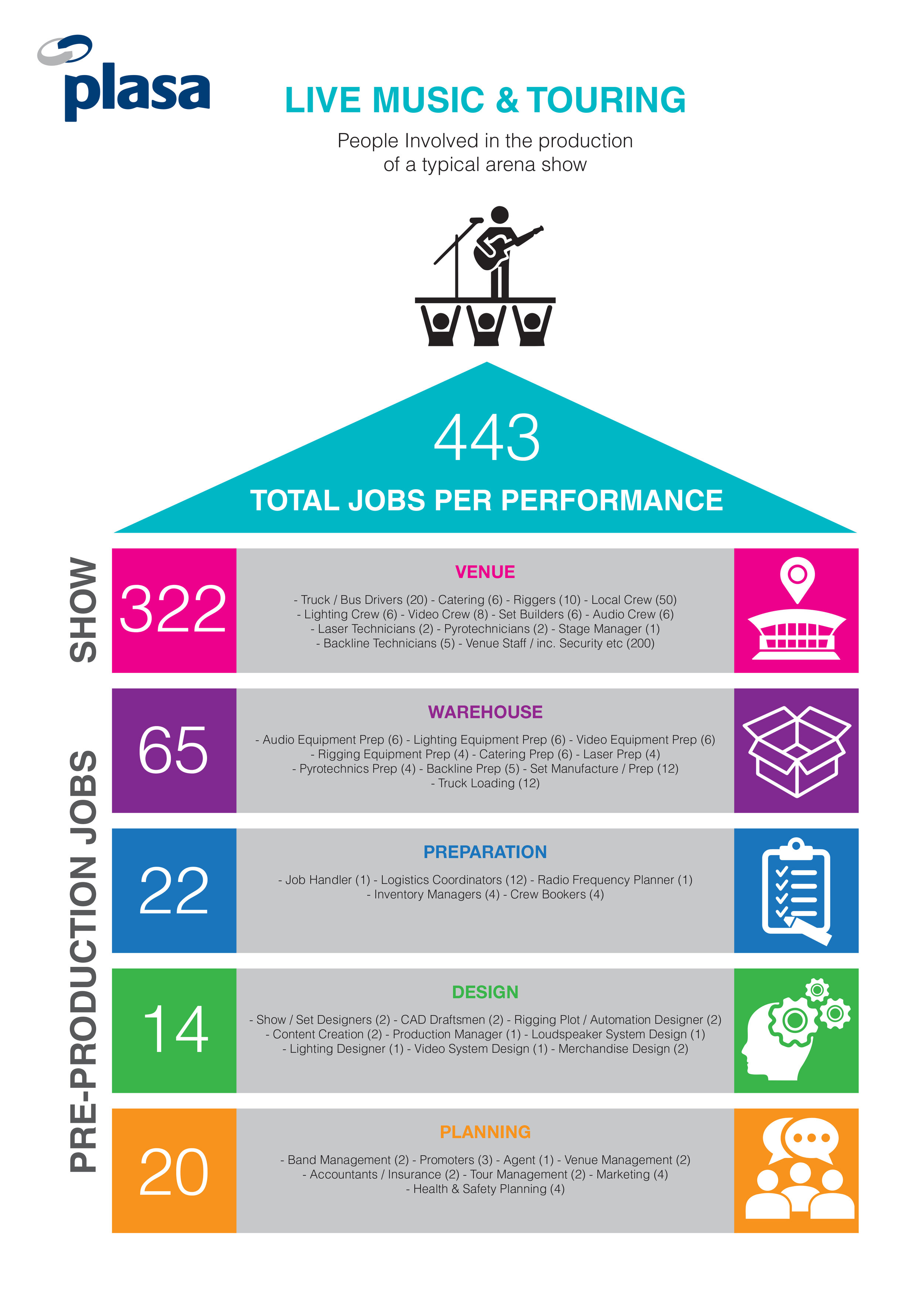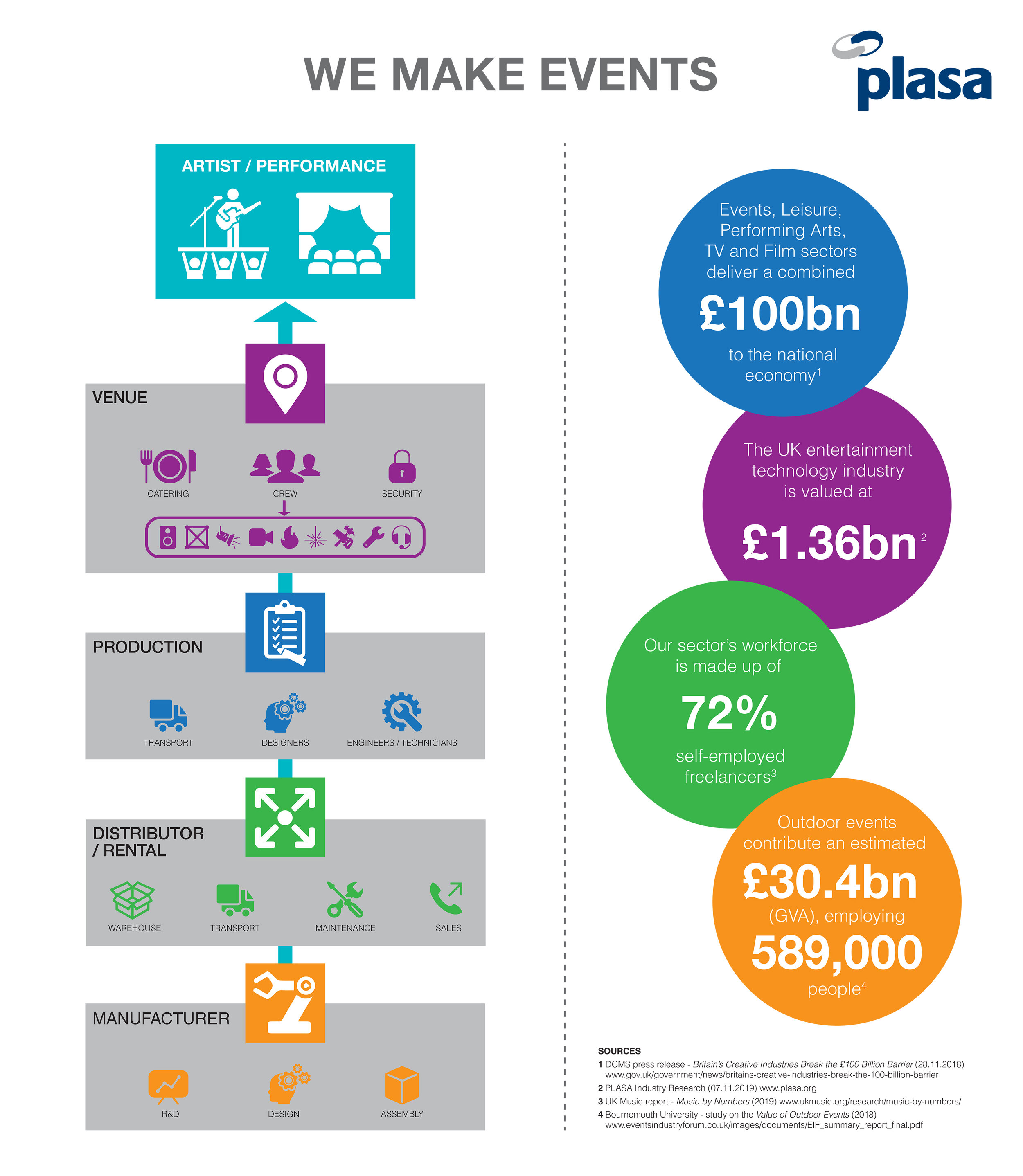When talk of COVID began, I was at my home in Manila, Philippines. It was early January, and we were expecting our second child. Finlay arrived happy, healthy (and loud) at 01:00 am on the 28th January and I couldn’t be happier. A fortunate side effect of the pandemic has meant that rather than jetting off in March or April to put a show together, I’ve been able to spend the first 7 months of his life with him, his older brother and his mother. A time that I’m usually away for, and very much was for our first child, who is now 7 and is utterly unused to seeing me for so many consecutive months.
This, of course, is partially my own fault. I choose to base my family in the Philippines where the quality of life is higher for the income I have, but the reality is that the scale of projects I design, means that I would be away for many months at a time regardless of where we lived.
In my head, at the beginning of all of whatever this is, I think I was expecting another Ebola crisis. A concern, but not something to get too worried about. I suspect that I’m not alone. I most certainly wasn’t expecting a year where we as a business, thus far, have invoiced less than a thousand pounds; and I most definitely wasn’t expecting to have to put my life on hold indefinitely, and I’m one of the lucky ones.
By around about the 8th of August, news outlets were reporting
“1 in 9 staff of high street stores to be made redundant”
A worry for sure, but what the media seem to completely fail to understand is that just about every single freelance entertainment professional across Theatre, Live Events, Corporate Events, and Concert Touring, as well as many in Film and Television, essentially lost their jobs in March. Further, there is no expectation that they will be able to properly return until at least Spring of 2020, and many are expecting it to be later than that.
A quick look at Johanna Town’s (chair of the Association of Lighting Designers in the UK) twitter feed (@Jetlighting) gives me this information regarding Theatre redundancies and job losses circa August 10th 2020:
· Ambassador Theatre Group – 1200
· Belgrade Theatre Coventry – 21
· Birmingham Town Hall and Symphony Hall – 35
· Birmingham Hippodrome – 62
· Birmingham Rep – 47
· Bristol Old Vic – 20
· Canterbury Marlowe Theatre – 30
· Edinburgh Traverse Theatre – 11
· Exeter Northcott Theatre – 35
· Fairfield Halls – 200
· Guildford – Yvonne Arnaud – 10 (another 4 possible)
· Horsham Capitol Theatre – 4
· Horsecross Arts Centre – 168
· Ipswich New Wolsey Theatre -23
· Kings Cross Arts Venue – 10
· Leicester Square Theatre – 36 (maybe more)
· Lowestoft Marina Theatre – 39
· Manchester Royal Exchange – 96
· National Theatre – 250+
· Newcastle Theatre Royal – 44
· Nimax Theatres – 130
· Norwich Theatre - 172 (including 59 on zero hrs contracts)
· Nuffield Southampton Theatres – 86
· Oxford Playhouse – 12
· Pitlochry Festival Theatre – 42
· Plymouth Theatre Royal – 110+
· Somerset Stride Theatre - 8
· Theatre by The Lake Keswick – 38
· Tobacco Factory Theatres – 25
· Southbank Centre London – 400
· Wales Millennium Centre – 250
· Wiltshire Creative – 40% of staff
· Worthing Theatres – 86
A speedy run through that list with a calculator tells me that that’s roughly 3,700 people. All unemployed through no fault of their own, in one of the United Kingdoms fastest growing sectors. And that’s just the venues, physical Theatres themselves.
Across the rest of the industry, numerous small music venues are facing closure, and several long-established, well-known suppliers have closed. In the last week alone, I’ve learned of 12 companies closing their doors for good. That includes Lighting, Sound, Video, and Staging rental companies, Production Companies, and with them, at least a further 1,000 people now out of work. As well as many, including one of the world’s biggest rental houses, laying off the vast majority of their staff.
It was heartening then, to see the #WeMakeEvents #LightItRed protests across the UK to highlight the situation and the positive response that the press gave it, although still somewhat maddening to see the massive amount of quite frankly lazy journalism that seems to have missed the point entirely.
I’ve said it here before, but I’ll say it again.
The £1.5 Billion that the government have generously given to the sector is NOT going to go to the freelancers or the supply chain. It’s for venues and is most likely going to be used to pay their rates and electricity bills, pay for building maintenance and the salaries of their full-time admin staff (assuming they have any left, see above).
So what was #WeMakeEvents about? Using the boilerplate from PLASA (the Professional Lighting and Sound Association) is probably easiest at this point…
The events sector urgently needs government support to survive the COVID-19 crisis
Without major immediate support from the government, the entire supply chain is at risk of collapse. Live events around the world and across the entire landscape of major festivals, landmark theatres, to grassroots venues and business events have been devastated by COVID-19.
Red Alert is a campaign to raise public and media awareness in support of the live events sector which employs circa 1,000,000 highly skilled people in the UK, all of whom have had no work for the past four months with little likelihood of restarting until Spring 2021. The sector includes a huge supply chain of companies ranging from event production, audio, lighting, video, logistics, planning, transportation and some of the world’s leading technology manufacturers.
The campaign is being run by a large and growing industry collective of trade bodies, businesses and freelancers affected by the shutdown all working together. It spans online and social messaging, video, case studies and legal outdoor events to gain media attention. Our aim is to have financial support extended for the people and companies in this sector until they can return to work.
The UK is regarded as a world leader in delivering complex events and we risk losing it forever. So join now the collective efforts to get the industry’s voice heard, calling for sustained immediate financial support by visiting
#WeMakeEvents
Watch
Share
Record
Write.
Find out more at www.plasa.org/we-make-events/
I don’t have the solution for this. No one person does I would bet, but until the government actually step up, and we can all actually get back to work and doing what we do so well, the situation is only going to get worse.
Now. You may be thinking ‘I don’t work in events, what do I care?’, and that’s fair enough I suppose. But consider this. Without the supply chain and the freelancers that design and tech the equipment. There will be no Concerts, no Theatre, no Corporate get-togethers and trade-shows, no comedy tours, nada. As the skill sets disappear, there will be no people to move into the industry, and this will have a huge knock-on effect in Film and Television. This then means that all of the Netflix, Amazon Prime Video, all of the Albums and Live Gig DVD’s that have gotten you through your furlough will eventually just stop.
It’s early days, but already I know of people leaving the industry most likely never to return. And if you don’t work in the Entertainment industry you should be worried. They will be coming for your job. These are people that work to demanding deadlines that are absolute and immovable. They solve problems, complex problems, in seconds; they can change their plan and the minutiae of it as and when required in order to get the job done and with little to no notice; they function on minimal sleep week after week, and they thrive on the unexpected. Thinking out of the box is a normal day at the office for them, and you most certainly don’t want them coming after your job.
Hopefully, I’ll be back to writing about lights, and gigs, and desks, and all that good stuff soon. For now, though, some things need saying and I find that it’s at least a little cathartic to put it on paper.
Stay safe.
Peace and Love
Smiffy




